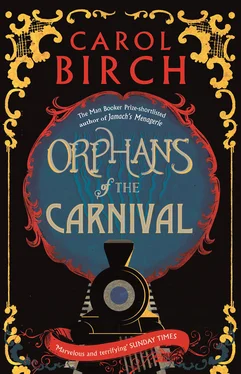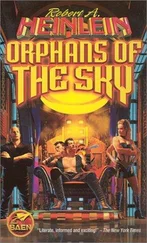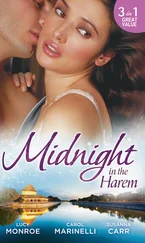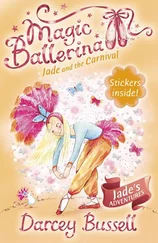Crying? That’s not the way, Solana would have said, with a slap to the back of the head. That’s never the way! Santy Ana took my boys. Do you see me crying?
She sat up.
‘No,’ she said out loud, and her heart sank at the enormity of carrying on. I can’t do it, said her head. You can, said that other that always pushed her on. Go home, go home, admit defeat. There was nothing out here, never had been. She stood up, dried her eyes, walked to the mirror, cleaned herself up briskly. Nothing’s safe. Not even life. Santy Ana takes boys. Mothers have pigtails. Knives cut, and children are cruel. And I’ll go my own way and make my own money and no one’ll ever stop me.
A small flap of skin had come loose in the middle of her cheek. It wasn’t bleeding much any more, but the whole area around it was thickening up and darkening. They will not stop me. Her eyes watered again but she stopped them, pressing the displaced skin back into place. She remembered that stone. It hadn’t hurt that much at the time, but now the wound throbbed and ached. ‘As if I wasn’t ugly enough,’ she said and laughed. God loves you, Solana said, her conviction firm. And that’s all that matters. And don’t you forget it.
‘Here’s why you will never be free,’ said her face in the mirror.
Back!
No.
Let them try.
She set about camouflaging the fierce little wound.
That night when she stepped out in front of the crowd, she couldn’t shake a funny feeling that she was also out there in the audience, staring at herself. There was a little girl at the front, holding on to her mother’s hand. She stared very gravely and thoughtfully at Julia and her eyes never wavered. Some people said you shouldn’t bring a child to a show like this. She might be the little girl at the window last night, the light in the square. Last night when everything was peaceful. Maybe she’d come with her mother and that was her out there, looking at the monster.
The monster, smiling, stared straight back at her.
Maud Sparrow and her fiancé jumped ship at Boston. Zeo the Wild Human headed out for Albany with Ezra and Berniece, who were talking of going to Europe, and after that, she was on her own again. She thought about giving it all up, going home, but then — suppose she did and they said oh no, we replaced you, Julia. You were ungrateful. So much of the past had been tied up with Solana, so much that she’d balked at, the old woman moaning and groaning all the time, propped high on her pillows, pillow-like herself, breathing loudly and dribbling chucaca tea, smelling of piss, dying far from home and talking constantly of her little house with the pictures on the wall, and the arroyo out back where the gazelle came down to drink. No. No going back, not now. Not for Solana, not for her.
In Providence one night, Beach said they were through with the circus. Enough of these sideshows. From now on she would only play solo performances. ‘We’ll sell you as a cut above,’ he explained, ‘not for the hoi polloi. Quality performer. Soirée. You know? These little folk songs, they’re nice enough, but what about these classical things you do? Say we get you some pearls for the front of that dress you’ve been working on for so long? How’s that coming along, by the way?’
‘Nearly finished,’ she said. ‘Pearls would be nice.’
‘Pearls it is.’
‘And I can sing arias,’ she said. ‘I like singing arias.’
‘That sort of thing.’
‘I can still sing my old songs too though, can’t I?’
‘If it seems to be the thing. But I think you should go for a kind of — you know. Go like a lady.’
Going like a lady was a game that kept away the spectral children who came and laughed at her sometimes when she was trying to get to sleep. So she went like a lady in Philadelphia and Atlantic City, and after a while realised how greatly things had changed since those first days, little more than two years ago and already becoming rose-tinted. Sitting about watching Myrtle painting her eyes with her feet. She got the best quarters now, the best dressing room. Beach made sure of it. He had other artistes, other commitments, but till Christmas he’d build her up. Next, New York, he said. The Stuyvesant. By then the whole place would be agog. And then — who knows? We’ll come to that, he said, and a chill of excitement went through her. Change was constant. She saw that she would not stay with Beach. He grew bossier by the day. He wanted to tell her what to sing and how to do her hair, when to come and when to go. So she waited for Christmas and New York, when there would be change. She knew he was getting offers. If he’s getting money, I am too, she thought. I’ll make him put it in the contract like Myrtle and Delia said. The thought of those two gave her a homesick feeling. Almost like a family she’d never had. Funny, running into Cato like that. When she closed her eyes, she saw Cato in his grass skirt, grinning at the crowd. That’s how it was: bumping into people, bumping off them randomly.
This Eastern seaboard tour was cold and lonely, a jittery meandering filled with rooms where she hid, bored. She kept running out of things to read. He kept saying he’d bring her more and forgetting. The weather out there was foul and those children would creep into her head, evil gargoyles, fallen cherubs picking at her. A phantom knife would slit her skin, a phantom self cringe. She’d swallow hard, banishing them like demons. Begone! Away! She couldn’t go out because of them. And even if she could, what point in wandering about alone in every strange place you came to?
It was a long stretch of tedium punctuated with shows, from which she bounced one to the other as if jumping from tussock to tussock over uneven ground. And in the middle of all this a special invitation came.
‘This is it!’ Beach crowed, shaking it in the air, his great crooked-toothed grin ramping over his face. ‘Listen. Ha ha! We are cordially invited to attend the annual Grand Military Ball. In Baltimore. This is it , Julia. Recognition !’
The dress was ready. It had pearl buttons on the bodice to match the pearl cross at her throat, a low sweep of silver lace across arms and breasts, ribbons at the waist. She wore it with long white kid gloves, black satin slippers and a tiny silk reticule. In her hair she wore the shell comb she’d bought on Broadway. Best of all, she was not veiled. One whole night without it, from the moment she entered the building.
The portico was stabbingly bright, full of smiling, glaring faces that swam in front of her like great balloons. A silver chandelier flew swan-like overhead. A staircase rose, wrought ironwork painted gold. She ascended on the arm of Beach, who’d had a stiff two or three for his nerves and was breathing out an air of sweaty perfume and brandy, smiling wildly.
Double doors opened inwards. A smart man in black called out their names to the assembled terrifying throng of glorious dresses and bright-buttoned and heavily medalled chests. Nothing in her life had prepared her for this. The beautiful dresses, the shine of the chandeliers, the sparkle of drinks through faceted glass. Flowers hung in garlands and swags around the columns. Every eye was on her.
The band played ‘Hail Columbia’.
She was led along a line of important men and gorgeously gowned ladies, all so clean and scrubbed, so powdered. She felt like a small child hanging on a big man’s arm. It wouldn’t do, so she let go and pretended she was tall and sophisticated. She met brigadier generals, major generals, this and that officer, and all their ladies so delighted, delighted, delighted, one after the other, so that she had to keep saying the same thing over and over again. How do you do? How do you do? I am very well, thank you. I am so pleased to be here. Delighted. Yes, this is my first time in Baltimore. And they were all eating up her face with their eyes. A smart man with slicked back hair ushered her courteously along, and she floated away from the end of the line with Beach in her wake and was led to a table where they were to sit with a gaunt old Major and his kindly rodenty little wife. The Major bowed. The wife clutched Julia’s hand in her cold white paws and stared hard, mouth clenched in a smile that was both genuine and strained.
Читать дальше












